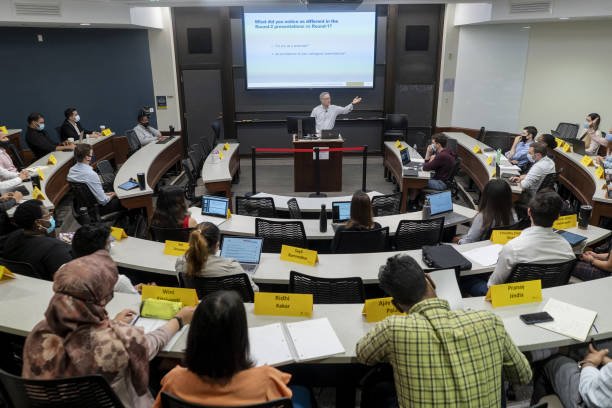Accelerated MBA Programs: Benefits & Risks
An Accelerated MBA program is a fast-track version of the traditional MBA, allowing students to earn their degree in a shorter time.
These programs are designed for professionals who want to advance their careers quickly without spending years in school.
While they offer many advantages, they also come with challenges that students should consider before enrolling.
This article explains the key benefits and risks of Accelerated MBA programs to help you make an informed decision.
What Are the Benefits of an Accelerated MBA Program?
Accelerated MBA programs usually take 12 to 18 months to complete, compared to the usual two years for a traditional MBA.
This means students can re-enter the workforce faster with an advanced degree.
The shorter duration reduces the time spent away from work, making it easier for professionals to balance education and career growth.
Are Accelerated MBA Programs More Affordable?
Since these programs last for a shorter period, tuition fees are often lower than those of traditional MBAs.
Students also save on living expenses by spending less time in school. However, the cost per semester may be higher due to the condensed schedule.
It is important to compare total expenses before making a decision.
Do Employers Value Accelerated MBAs?
Many employers recognize Accelerated MBA programs as equal to traditional MBAs, especially if the school is well-known.
The intensity of the program demonstrates strong time-management and dedication, which are qualities employers appreciate.
However, some industries may prefer candidates with more work experience, so research your field before applying.
Can an Accelerated MBA Help with Career Switching?
Yes, an Accelerated MBA can help professionals transition into new industries or roles quickly.
The program covers core business skills in a short time, making it useful for those who want to change careers without a long break.
Networking opportunities during the program can also open doors to new job prospects.
What Are the Risks of an Accelerated MBA Program?
The fast pace means students cover the same material as a traditional MBA in half the time.
This can lead to a heavy workload, leaving little room for part-time jobs or personal commitments.
Those who struggle with time management may find it stressful.
Does an Accelerated MBA Offer Less Networking?
Traditional MBA programs often have more networking events, internships, and social activities.
Accelerated programs may limit these opportunities due to time constraints.
Students must make extra effort to connect with peers and industry professionals.
Are There Fewer Specialization Options?
Some Accelerated MBA programs offer fewer elective courses or specializations compared to traditional programs.
This could be a drawback for students who want in-depth knowledge in a specific area like marketing or finance.
Should You Choose an Accelerated MBA Program?
Deciding whether an Accelerated MBA is right for you depends on your career goals and personal situation.
Here are some factors to consider:
- Career Goals – If you need a degree quickly to advance in your current job or switch fields, this program may be a good fit.
- Financial Situation – Lower total costs can be appealing, but ensure you can handle the condensed payment schedule.
- Learning Style – These programs require discipline and focus, so assess whether you can manage a fast-paced environment.
Accelerated MBA programs offer a faster, more affordable path to a business degree but come with challenges like a heavy workload and fewer networking opportunities.
By weighing the benefits and risks, you can decide if this option aligns with your professional needs.







